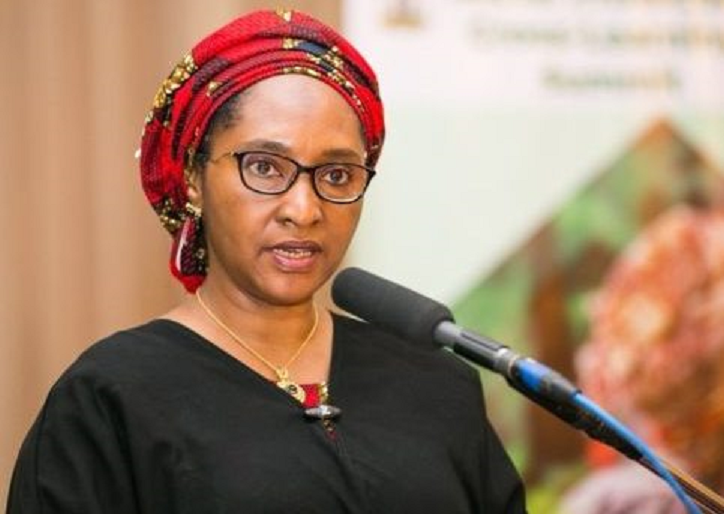MARKETS AND ECONOMY
Three Reasons Oil Price Increase is a Curse to Nigeria – Finance Minister
Published
4 years agoon

By Ahmed Ayanfe
Nigeria’s Minister of Finance, Budget and National Planning, Mrs. Zainab Ahmed has explained that the sustained oil price increase in the global market is not a blessing to Nigeria at the moment.
Read Also:
For decades, Nigeria has solely relied on money from oil as the major source of revenue of the federal government generating up to 80% of total money used to run the country.
As a result, the price of crude oil in the global market is often used as a benchmark of revenue generation in the appropriation bill of the Africa’s largest economy every year.
In the 2022 fiscal budget of over N17 trillion, the government had initially pegged the oil benchmark at $62 per barrel before it again gave it an upward review to $73 in April.
Business Metrics can authoritatively report that from benchmarked price, oil price in the global market has soared significantly, trading at $120.3 as at Wednesday evening, and even with multiple predictions that the price is aiming at touching $140 dollars any moment from now.
This insinuation was again reinforced Wednesday by Vandana Hari, Founder and CEO of Vanda Insight, who argued that players in the market should expect extended bullish run rather than crashing to $110.
According to her, “As long as the Russia-Ukraine war continues to fester and the sanctions remain in place, it is very hard to see Brent going back below $110. The safety valves are all closed.”
3 problems facing Nigeria
Ordinarily Nigeria should be upbeat with the oil rally development and continue to divert enough fund into its excess crude account, but the reverse is the case.
Explaining why this is so, Nigeria’s finance minister pointed out that Nigeria was facing challenges from not gaining from the current oil price rally.
She said: “We are in some kind of crossroads. It is not hearsay to say that Nigeria has not derived what it should from the current high crude oil prices, rather rising crude oil prices are posing significant fiscal challenges to our economy and may lead to some negative receipts and indeed we have started seeing already those negative receipts.
“There are three factors preventing Nigeria from fully benefiting from the current boom in the international crisis. First of all, our prediction had fallen below Nigeria’s estimated capacity and the OPEC quota because of insecurity vandalism and theft. Secondly, the domestic price of payments has remained fixed, while global PMS prices have continued to rise.
“The third is that rising international crude prices also increases the burden of PMS because we buy refined petroleum products. The higher crude oil price goes in the global market, the more we’re paying for PMS, and by maintaining this PMS subsidy we as a country unfortunately forego investments that will have used the monies into essential infrastructure, goods or services that would have increased the overall productivity of the nation. So, this is really the bane of the major issue that we’re facing now.”
In an earlier ANALYSIS, Business Metrics had dwelt on how subsidy had been a major bottleneck, preventing Nigeria from fully benefiting from the rallying oil price in the global market.
READ MORE BELOW
ANALYSIS: Fear of Subsidy Grips Nigeria as Oil Heads for $140
Share this:
- Click to share on X (Opens in new window) X
- Click to share on Facebook (Opens in new window) Facebook
- Click to share on WhatsApp (Opens in new window) WhatsApp
- Click to share on Pocket (Opens in new window) Pocket
- Click to share on Telegram (Opens in new window) Telegram
- Click to email a link to a friend (Opens in new window) Email
- Click to share on LinkedIn (Opens in new window) LinkedIn
You may like


NNPC Limited Releases New Pump Prices of Petrol in Nigeria


Fuel Subsidy Removal: World Bank Provides $800m Palliatives for Nigerians


Nigerians Pay N10 Trillion in VAT to Buhari Administration


Poor Nigerians to Receive Fresh $800m in Cash Transfer Scheme


Naira Redesigning: Naira Plunges to N785/1$, Confirms Finance Minister’s Fear


Finance Minister Disagrees With CBN On Plan To Redesigning Naira










